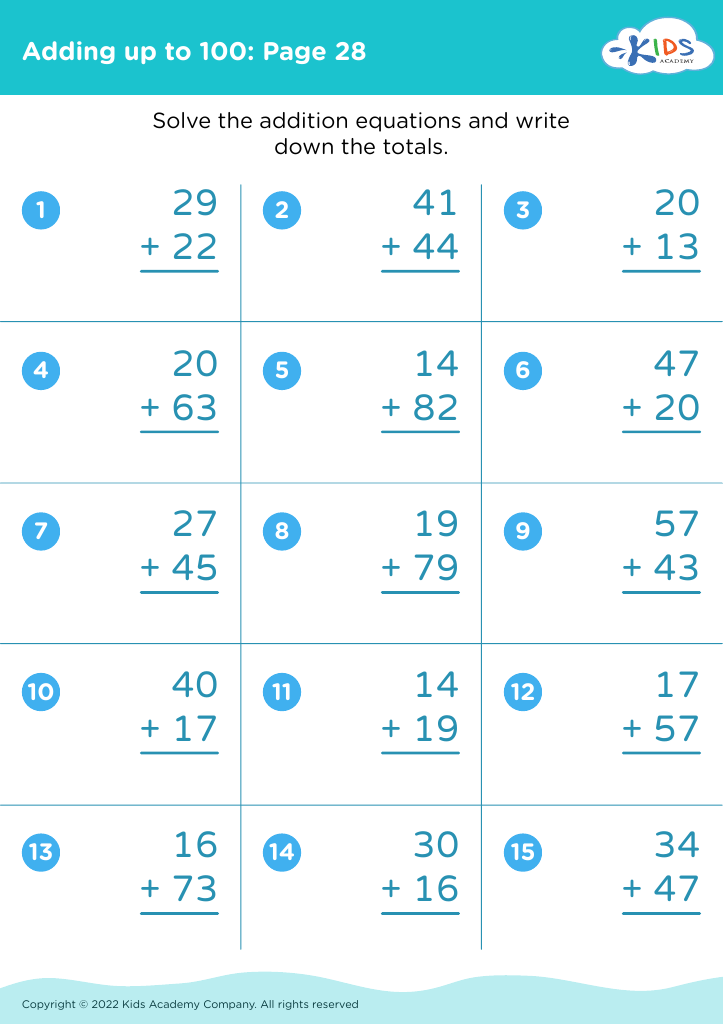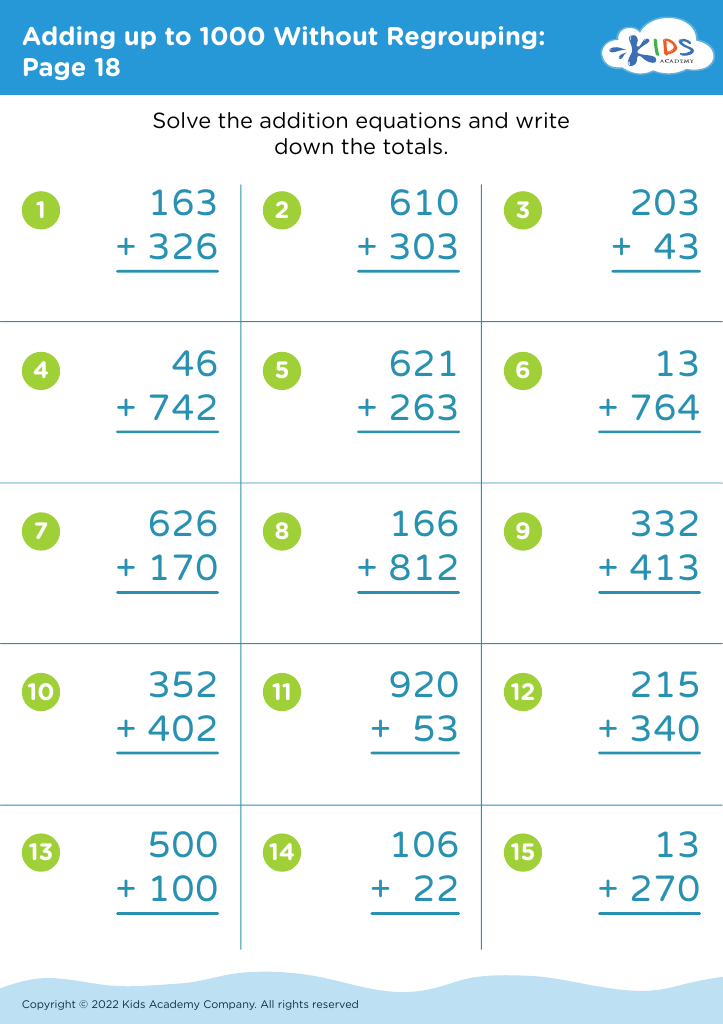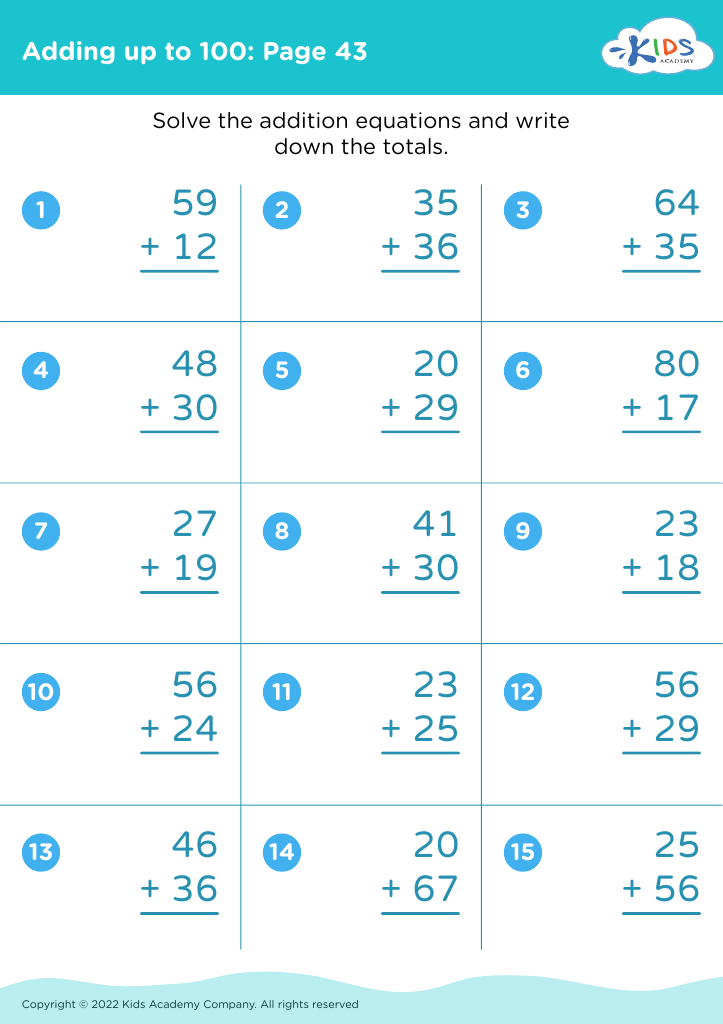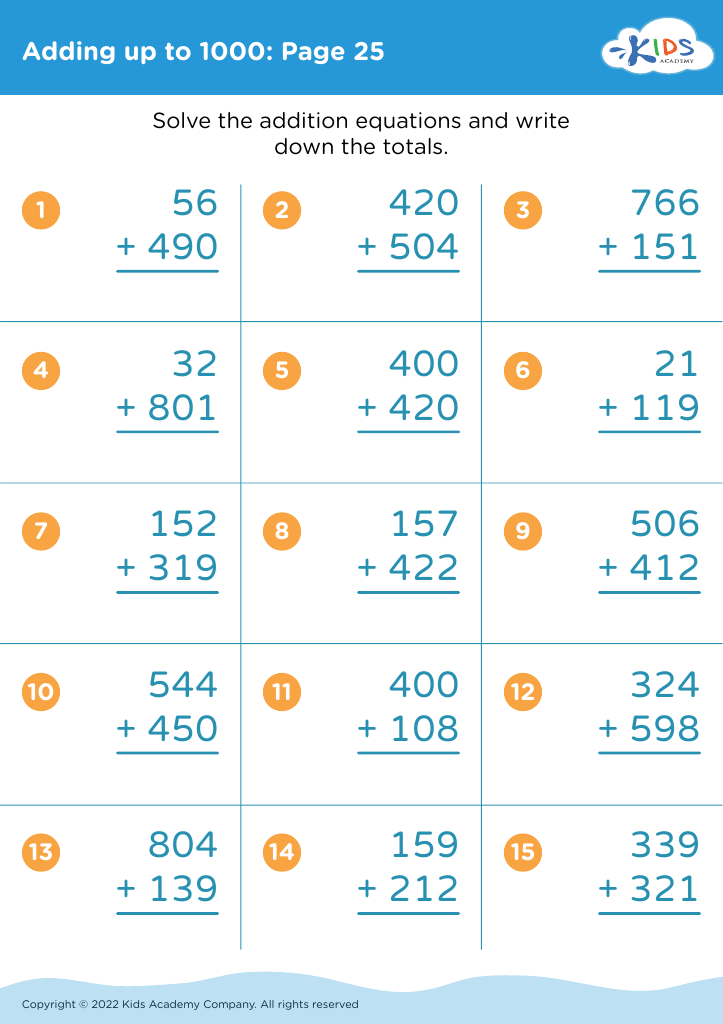Improving mathematical skills Addition & Subtraction Worksheets for Ages 3-9
4 filtered results
-
From - To
Boost your child's mathematical abilities with our engaging addition and subtraction worksheets, designed specifically for ages 3-9. These printables are tailored to make learning fun while challenging young minds to grasp basic math concepts with ease. Reinforce class lessons or provide extra practice at home through a wide variety of exercises suited for different skill levels. Perfect for early learners, our worksheets nurture confidence, build a solid foundation in math, and pave the way for advanced problem-solving skills. Start your child's journey towards math mastery today with our expert-crafted resources from Kids Academy!
Developing mathematical skills, particularly addition and subtraction, for children aged 3-9 is crucial for their overall cognitive development and future academic success. During these formative years, children's brains are highly receptive to learning new concepts and skills, laying a strong foundation for advanced mathematical thinking later in life. Mastery of basic arithmetic enhances problem-solving abilities, logical reasoning, and critical thinking—skills that are essential not only in mathematics but also across diverse subjects and practical life scenarios.
Furthermore, early proficiency in addition and subtraction aids in boosting children's confidence and love for learning. When children easily grasp fundamental concepts, they feel a sense of accomplishment, which fosters an enduring positive attitude towards mathematics. This positive association is vital as it encourages continued interest and perseverance in more complex mathematical concepts encountered in higher grades.
For parents and teachers, focusing on these skills also helps identify and address learning difficulties early on. Intervening at this stage ensures that children receive the necessary support and tools to overcome challenges, preventing future frustrations and learning gaps. Therefore, prioritizing the improvement of addition and subtraction skills during the early years is essential for setting children on a path to lifelong academic and personal success.
























